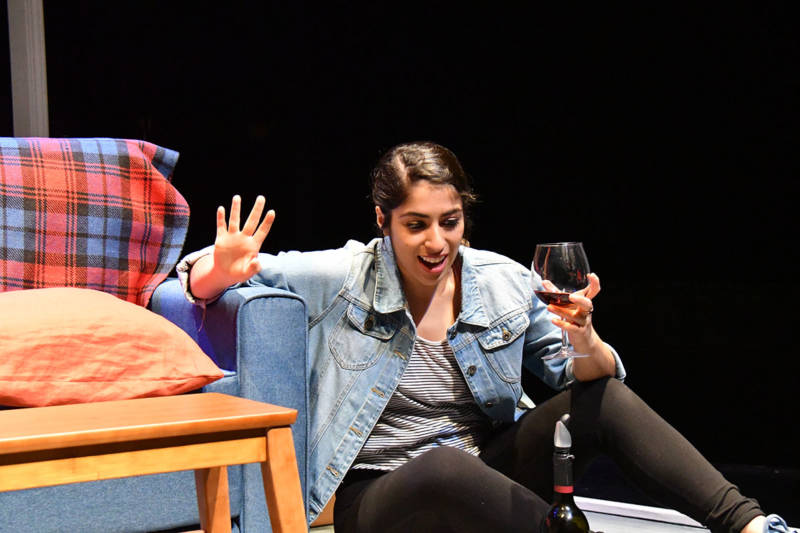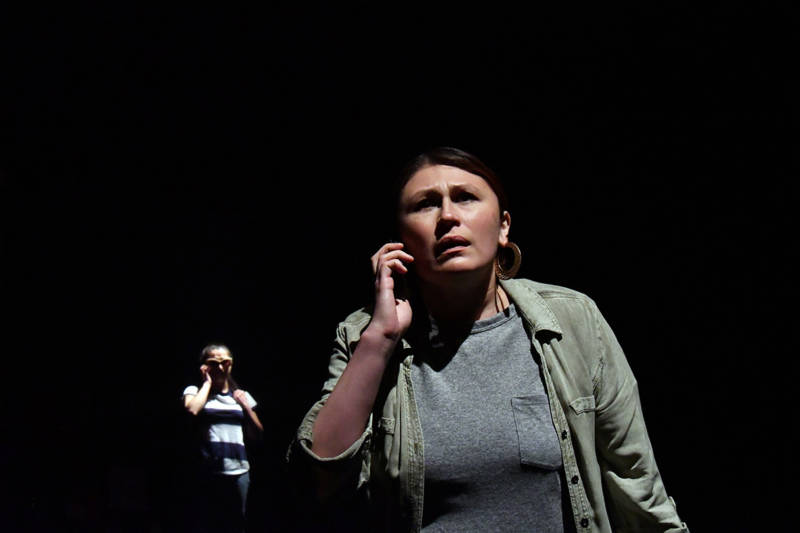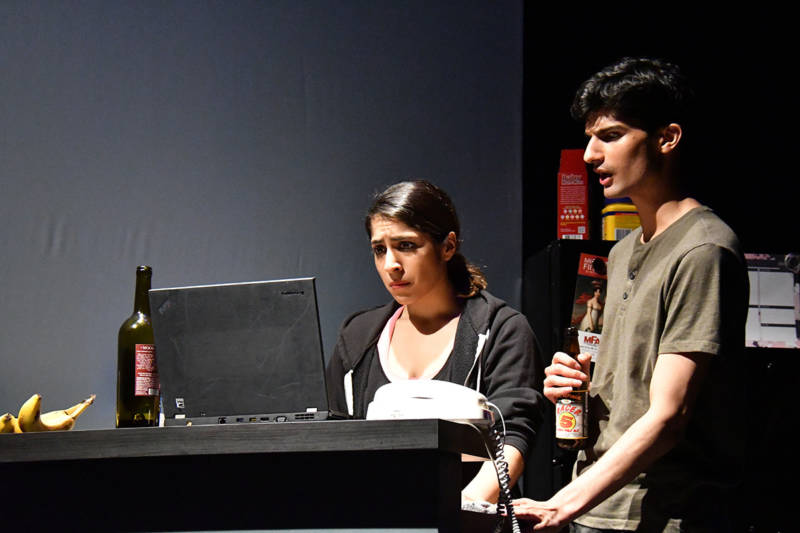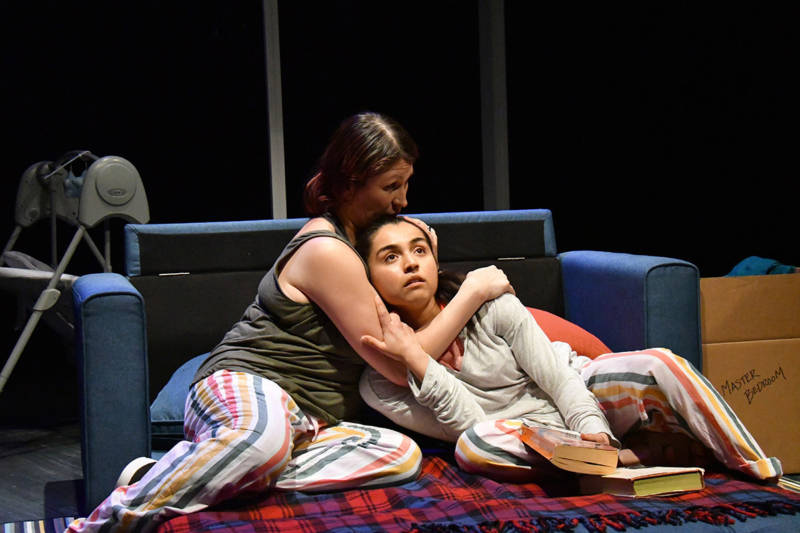It was the best of times, it was the worst of times, and in an urban area much like our own, an undocumented housekeeper is reunited with a woman who used to be in her care as a teenager.
In Far, Far Better Things, a co-production between TheatreFirst and the Shotgun Players, Zoe (Kimiya Shokri) is finishing a residency while attempting to raise a newborn baby alone, and has hit upon what she thinks is the perfect solution. Why not hire this familiar face from her adolescence to watch her child while she works to get her medical license? Of course, just as Zoe has grown in the interim, so too has her former housekeeper and now nanny, Pilar (Michelle Navarrete), who brings an adolescent of her own, Dani (Neiry Rojo), along with 16 years’ worth of additional life experiences that Zoe cannot entirely comprehend.
Not that Zoe even tries very hard. In Zoe, playwright Geetha Reddy delivers a casualty of millennial overextension—perpetually exhausted, myopically self-absorbed, a devotee of “self-care” up to and including spin class but not in limiting her consumption of bedtime wine. For Zoe, Pilar is a convenience, a godsend, and a given. For Pilar, the situation is infinitely more complicated, and as her personal autonomy becomes increasingly encroached upon, she realizes too late that her erstwhile haven has become a prison.

Reddy’s Far, Far Better Things may have been inspired by her desire to revisit Charles Dickens’ revolutionary epic, A Tale of Two Cities, but the resultant, episodic play feels much more influenced by the pressing political concerns of today—women’s rights, immigration, domestic violence. True, there are nods to the original text (mostly in book report form, as Dani is writing about it for her high school English class), but Far, Far Better Things takes on a life of its own as the action unfolds. Written as a series of interconnected vignettes bracketed in the production by video (Ben Euphrat and Brandon West) and soundscape (Kristoffer Barrera), the play turns quiet domesticity into a fraught frontline. One where wildly divergent expectations cannot be met, and deep disconnections may prove impossible to bridge.
Directed by Katya Rivera, the production excels at revealing the quiet desperation threading through the lives of its female protagonists. Although outwardly in control of their respective paths—as mothers, daughters, career women, and students—it doesn’t take long for us to recognize that beneath a veneer of competency, each character barely holds themselves together. At the heart of their unease lies the ugly specter of domestic violence, which colors their relationships yet ties them, however unwillingly, together—a sisterhood of the abused. How they ultimately choose to confront the past and challenge their future gives the play its barely plausible storybook ending, but before we get there, it’s the indignities of the everyday that command the audience’s attention.

Where the production suffers most is in its treatment of the character Josh (Yohana Ansari-Thomas), who as Zoe’s kid brother is himself a victim of childhood abuse, and yet never gets to evolve beyond villainous caricature. He’s basically a walking misogynist hashtag, whose every action serves to perpetuate a cycle of violence that he doesn’t get the opportunity to recognize affects him too. Josh’s existence feels basically written to jolt Zoe and Pilar from their “inert” paths and into action, but that propulsion comes at the expense of meaningful character development. Making him Zoe’s brother feels almost like an afterthought, and Ansari-Thomas and Shokri rarely read as family members onstage—a sharp contrast to the chemistry between Navarrete and Rojo, whose mother-daughter dynamic feels much more natural and compelling.

The moment where the characters break free of their respective confinements and out into the larger world does allow the play a nod to the epic self-sacrifice that gives A Tale of Two Cities its famous closing lines, and Far, Far Better Things its title. As an ending to this play, the scene feels a little rushed, and not necessarily true to each character, but as a beginning to a new chapter which gives both its struggling protagonists and the audience a reason to hope. It suggests that though we may not always be able to recognize the barriers set around us in time to push through them on our own, with solidarity, we can help set each other free.



